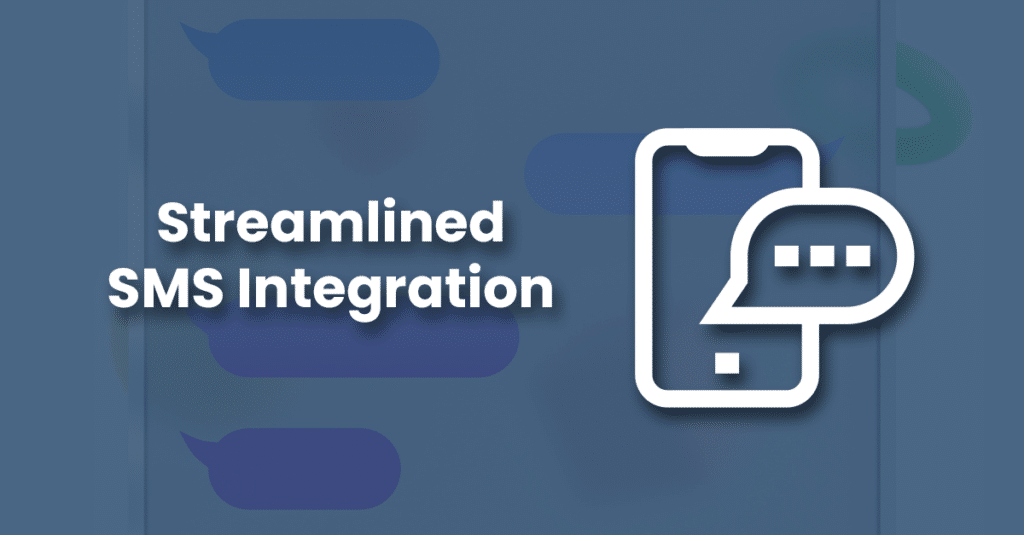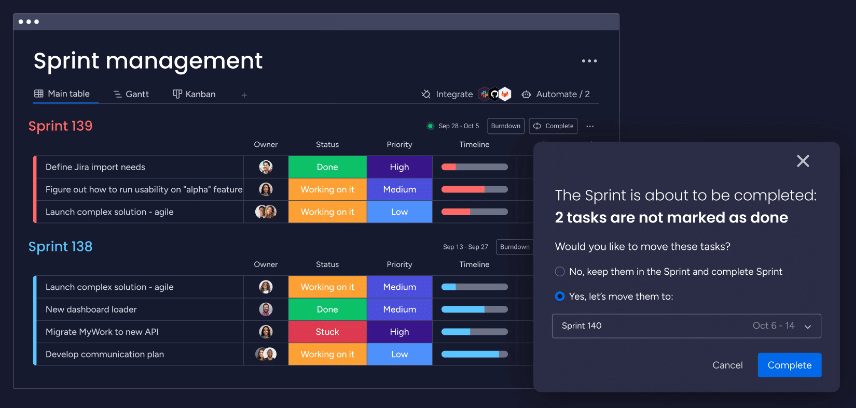What is Account-Based Marketing?
Account-based Marketing (ABM) is a highly focused marketing strategy that aligns marketing and sales efforts by targeting specific accounts for personalized campaigns. Unlike traditional marketing strategies that cast a wide net, ABM aims for precision, tailoring messages to decision-makers within targeted companies. As we navigate the complexities of modern B2B sales processes, it’s important to have an approach that provides high returns and maximizes resources. This blog post will delve into account-based marketing strategies for B2B enterprises, offering actionable insights for implementing ABM in your organization.
Why ABM for B2B?
In an increasingly competitive market, B2B enterprises need strategies that go beyond generic advertising or mass email campaigns. This is where ABM comes into play. Specializing in precision, ABM allows you to focus your resources on high-value accounts that are most likely to convert.
Higher ROI Compared to Other Marketing Methods
One of the most compelling reasons to consider account-based marketing strategies for B2B enterprises is the impressive Return on Investment (ROI). Various studies and industry reports have highlighted how ABM outperforms other marketing strategies in terms of ROI, making it a go-to option for B2B enterprises looking to make a significant impact.
Personalization and Targeted Approach
Modern customers expect personalized interactions, and this is especially true in the B2B sector where transactions often involve higher stakes. ABM allows for a highly personalized approach, from initial contact through to closing a deal, increasing the likelihood of conversion and customer retention.
Closer Alignment with Sales Teams
ABM’s targeted nature naturally fosters a closer alignment between marketing and sales departments. When both teams are focused on the same high-value accounts, coordination is smoother, and goals are more easily attained.
Why ABM is Essential for B2B Enterprises Today
In conclusion, implementing account-based marketing strategies for B2B enterprises is not just a trending topic but a necessity. The targeted approach and personalization capabilities of ABM make it uniquely suited for B2B marketing, providing a path for closer alignment with sales and higher ROI.
Identifying and Segmenting Target Accounts
Criteria for Selection
Before diving into ABM, it’s crucial to identify which accounts to target. Criteria may include industry relevance, revenue potential, and likelihood of conversion. Utilizing a set of predefined criteria will enable a more focused approach, thereby enhancing the efficiency of your account-based marketing strategies for B2B enterprises.
Data-Driven Approaches
In today’s data-rich environment, using analytics and AI-driven tools can greatly aid in selecting target accounts. These tools can analyze historical data, current market trends, and customer behaviour to prioritize accounts that are more likely to yield a high ROI.
Tools and Platforms that Can Assist
Given that this process can be intricate, leveraging specialized tools can be a game-changer. CRM systems like monday.com, with their analytical features, can help you collate and analyze the necessary data for target account selection.
The Importance of Dynamic Segmentation
The market is ever-changing, and so are your potential clients. Dynamic segmentation allows for adjustments to your target accounts based on real-time data and analytics. This ensures that your account-based marketing strategies for B2B enterprises remain agile and adaptive to market changes.
Collaborative Efforts
The best outcomes are achieved when sales and marketing teams work hand-in-hand during the target account identification process. This collaboration ensures that both teams are aligned in their objectives, making the ABM strategy more effective.
Developing Personalized Marketing Campaigns
Understanding Customer Needs
To successfully implement account-based marketing strategies for B2B enterprises, it’s essential to have a deep understanding of the needs and pain points of your target accounts. Customer surveys, interviews, and analytics can provide invaluable insights.
Customized Messaging
Once you’ve identified customer needs, crafting a message that speaks directly to those pain points is crucial. This not only grabs the target’s attention but also demonstrates that you have a solution to their specific problem.
Channel Selection: Email, Social Media, Webinars, etc.
The next step is to decide on the channels through which you’ll deliver your customized messages. Whether it’s through email campaigns, social media ads, or educational webinars, each channel should be chosen based on where your target accounts are most active.
Utilizing Technology for Personalization
Technology plays a significant role in personalization. Marketing automation tools, for example, can help you send targeted emails based on specific triggers, thus making your campaign more personalized and effective. CRM systems like monday.com can also track customer interactions, helping you refine your strategies over time.
Measuring the Impact of Personalization
It’s crucial to monitor how your personalized campaigns are performing. Use Key Performance Indicators (KPIs) like engagement rates, click-through rates, and conversion rates to measure success and make necessary adjustments.
Collaborative Approach for Campaign Development
Sales and marketing teams should collaborate closely while developing personalized campaigns. This ensures that the messaging is aligned with the overall sales strategy, creating a seamless experience for target accounts engaged in account-based marketing strategies for B2B enterprises.
Omnitas Newsletter
Sign up for our monthly newsletter to stay up-to-date on our latest blog articles, videos and events!
Thank you!
You have successfully joined our subscriber list.
Technological Tools for ABM
CRM Systems
Customer Relationship Management (CRM) systems like monday.com are foundational tools for any ABM strategy. They help track customer interactions, manage data, and facilitate personalized communication, making them indispensable for implementing account-based marketing strategies for B2B enterprises.
Marketing Automation Platforms
Marketing automation tools can help you scale your personalized campaigns by automating repetitive tasks. These platforms enable you to send the right message at the right time to your target accounts, improving engagement and conversion rates. As monday.com is more than a CRM, this powerful platform can also be used for your marketing activities to efficiently automate and ease your work.
Analytics Tools
Data-driven decision-making is crucial in ABM. Analytics tools can help you monitor key performance indicators, understand customer behaviour, and evaluate the success of your campaigns, allowing you to fine-tune your account-based marketing strategies for B2B enterprises.
Integration and Workflow Automation
Tools like Make can be essential for automating workflows between different platforms. This ensures seamless data transfer and communication between your tools, enhancing efficiency and reducing manual errors. While Make is great for connecting different platforms, you might not need that feature when using monday.com, as you’ll be able to use the platform for all your workflows and operations. However, Make shines bright in the sense that it can lift monday.com to new heights with more robust automations and customisations that aren’t possible when using only native functions.
AI and Machine Learning
Advanced technologies like AI and machine learning offer predictive analytics and customer segmentation capabilities. They help identify which accounts are most likely to convert, allowing you to focus your efforts more effectively.
Cybersecurity Measures
Given that ABM strategies often involve the collection and storage of sensitive data, incorporating cybersecurity measures is crucial. Secure your data to build trust with your target accounts and comply with regulations such as GDPR.
Implementing ABM in Different Verticals
Sales and Revenue Generation
In sales, ABM can focus on upselling or cross-selling to existing high-value accounts. It targets decision-makers with personalized pitches, boosting revenue generation potential and fostering long-term relationships.
Marketing
For the marketing vertical, ABM can include targeted content strategies that speak to the unique pain points and needs of identified accounts. This increases engagement and brand awareness among highly valuable prospective clients.
Project Management
In project management, ABM can help in identifying and attracting high-value clients who require complex solutions. By tailoring the approach to each account’s specific needs, companies can showcase their capability to manage intricate projects efficiently.
Operations
When it comes to operations, implementing account-based marketing strategies for B2B enterprises can optimize supply chain relationships or improve service delivery mechanisms. Personalized communication can help solve operational bottlenecks and lead to smoother workflows.
IT and HR
For Information Technology and Human Resources, ABM can be used to demonstrate how your products or services can solve specific challenges in areas like cybersecurity or talent acquisition, thus targeting accounts that would benefit most from your offerings.
Adaptability Across Industries
It’s worth noting that ABM’s flexibility makes it adaptable across a wide range of industries. Whether your B2B enterprise specializes in healthcare, finance, or manufacturing, the principles of ABM can be tailored to meet the unique demands of each industry.
Measuring Success
Key Performance Indicators (KPIs)
Understanding what to measure is the first step in assessing the success of your account-based marketing strategies for B2B enterprises. KPIs like engagement rate, click-through rate, and conversion rate are foundational metrics that provide insights into your campaign’s effectiveness.
Return on Investment (ROI)
A positive ROI is often the ultimate goal of any marketing strategy. For ABM, calculate the revenue generated from targeted accounts against the cost of your campaigns to assess their profitability.
Customer Lifetime Value (CLV)
In B2B settings, relationships often extend over longer periods. Evaluating the Customer Lifetime Value can offer deep insights into the long-term impact of your ABM strategy on customer relationships.
Account Engagement Score
Many ABM-specific platforms offer an Account Engagement Score, which measures how engaged each account is with your content and communications. This metric can be invaluable for refining ongoing and future campaigns.
Benchmarking Against Industry Standards
Comparing your performance against industry benchmarks can provide valuable context. If your metrics are lagging behind, it could indicate a need for strategic adjustments in your account-based marketing strategies for B2B enterprises.
Feedback and Qualitative Analysis
Apart from quantitative metrics, qualitative feedback from your sales team and target accounts can offer invaluable insights. This feedback can guide you in fine-tuning your strategies and campaigns.

Best Practices and Common Pitfalls
Start Small and Scale
One of the best practices is to begin your ABM initiatives with a smaller group of target accounts. This enables you to refine your strategies before scaling to a larger audience, ensuring that your campaigns are as effective as possible.
Align Sales and Marketing Teams
Alignment between sales and marketing is crucial for ABM success. Having both teams on the same page ensures consistency in messaging and strategy, which in turn, boosts the efficacy of your account-based marketing strategies for B2B enterprises.
Common Pitfall: Lack of Personalization
While ABM is all about targeted, personalized engagement, businesses often make the mistake of not personalizing their efforts sufficiently. Generic messages can quickly turn off potential clients and reduce the effectiveness of your ABM strategies.
Utilize Multi-Channel Approaches
Being present on multiple channels where your target accounts are active can significantly enhance engagement rates. However, it’s important to maintain consistency across these channels for a unified brand experience.
Common Pitfall: Inadequate Measurement
Another common mistake is not adequately measuring the performance of your campaigns. Without proper metrics in place, it’s difficult to gauge success and make necessary adjustments to your account-based marketing strategies for B2B enterprises.
Test, Learn, and Optimize
ABM is not a set-it-and-forget-it strategy. Continuous testing and optimization are key to long-term success. Make data-driven adjustments to your campaigns based on performance metrics and feedback.
Common Pitfall: Ignoring Account Feedback
Your target accounts are your best source of feedback for your ABM strategies. Ignoring this valuable input can lead to missed opportunities and less effective campaigns.
Future of ABM in B2B Enterprises
Increasing Role of AI and Machine Learning
As technology advances, the role of artificial intelligence and machine learning in ABM is set to expand. From predictive analytics to more refined customer segmentation, these technologies will offer more nuanced strategies for targeting and engaging key accounts.
Hyper-Personalization
As customers grow more accustomed to personalized experiences, the future will likely see even more hyper-personalized ABM campaigns. With advanced data analytics, businesses will be able to create highly specific content tailored to individual needs, taking account-based marketing strategies for B2B enterprises to a new level.
Integration of Virtual and Augmented Reality
Immersive technologies like Virtual and Augmented Reality are slowly entering the B2B space. They offer new avenues for product demonstrations and customer engagement, providing a cutting-edge supplement to traditional ABM strategies.
Expanding Scope of ABM
As ABM proves its effectiveness, its applications are likely to extend beyond just sales and marketing. We might see ABM approaches being applied in areas like customer retention, upselling strategies, and even in internal operations for staff training and skill development.
Ethical and Regulatory Challenges
As ABM strategies often involve extensive data collection, B2B enterprises will need to be increasingly mindful of data privacy laws like GDPR. Ethical considerations around data usage will become a growing concern in the future of account-based marketing strategies for B2B enterprises.
Conclusion
In today’s highly competitive and increasingly digital B2B landscape, Account-Based Marketing has proven itself as an effective strategy for targeting and engaging high-value accounts. From identifying and segmenting target accounts to developing personalized marketing campaigns, a well-thought-out ABM strategy can bring remarkable results.
The key to success lies in the intricate details: the alignment between your sales and marketing teams, the careful selection of technological tools, and the adaptability of your strategies across different verticals and industries. Measurement is equally critical. By focusing on the right KPIs, ROI, and customer feedback, you can continually refine your campaigns for better performance.
Looking ahead, the future of Account-Based Marketing Strategies for B2B Enterprises is bright and full of potential. Emerging technologies like AI, machine learning, and even augmented reality promise to take ABM to new heights of personalization and effectiveness.
As we navigate this exciting future, it’s crucial to stay updated on the latest trends and technologies, to adapt our strategies accordingly, and to remain ever-mindful of the ethical and regulatory landscapes surrounding data usage.
Thank you for joining us on this comprehensive guide to ABM. Whether you’re just getting started or looking to refine your existing strategies, we hope this post has provided you with valuable insights and practical tips to succeed in your ABM efforts.
Stay Connected and Explore Opportunities
Interested in diving deeper into the world of Account-Based Marketing and other transformative business strategies? Subscribe to our monthly newsletter for updates, tips, and in-depth guides tailored to elevate your B2B enterprise.
If you’re looking to explore the powerful capabilities of platforms like monday.com and Make, don’t hesitate to contact us below. Together, we can assess your current operations and identify exciting opportunities for improvement and growth using these versatile platforms. Don’t miss out on the potential to revolutionize your business. Get in touch today!














